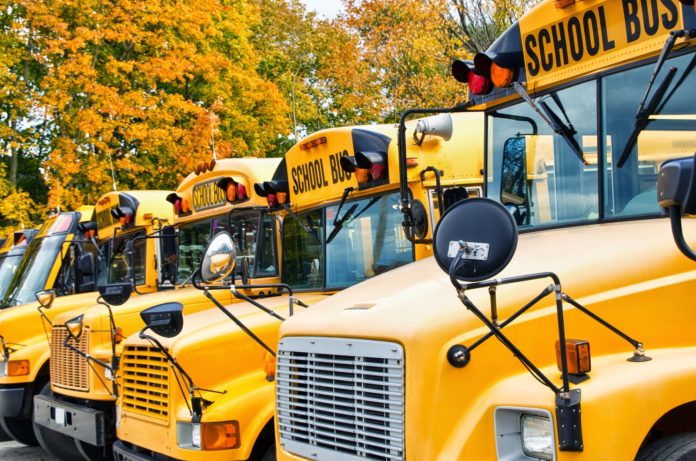A major overhaul of large parts of Arizona’s K-12 school funding formula backed by a school choice group and the Republican leader of the House Education Committee got last-minute approval in the House Appropriations Committee on Monday.
The party-line vote on the newly-revealed proposal drew major opposition from some school funding experts, some school districts, and minority Democrats, who said rolling out large changes to the system that funds education for 1.1 million public school students at the last minute is a recipe for disaster.
Public charter schools would be major winners, while traditional district schools would see a mixed bag of funding increases and cuts, depending on their current funding situation.
The proposal was introduced as a “strike-everything” amendment to unrelated legislation, a maneuver often used for last-minute proposals that avoids multiple steps and public hearings.
The proposal from Republican Rep. Michelle Udall, who chairs the education committee and is running for Superintendent of Public Instruction, would eliminate the current results-based funding system that allocates extra money to district schools whose students perform well on standardized tests.
Also cut is extra cash that goes to experienced teachers and another pot of money that helps boost teacher pay. Charter schools do not get that extra money, so will see no cuts.
In exchange, the state will add $170 million per year to the basic funding formula for all schools but distribute the money in a different way. The overhaul also changes how district schools are paid for running bus routes, increasing available funding by $120 million but eliminating extra funding that goes to some schools over five years.
All told, the state’s traditional district and charter schools would see an additional $215 million per year in money. This budget year, traditional district and charter schools are receiving $5.9 billion in state funding, by far the largest segment of the $12.9 billion budget.
A financial analysis showed 121 of the state’s 220 school districts would lose money under the plan.
District schools would have to give up the ability to ask voters to approve bonds and budget overrides that allow them to spend above set limits. Charter schools can’t do bonds or overrides.
Matt Simon, a vice president with the school choice advocacy group Great Leaders, Strong Schools, said the proposal is about equaling out funding for charter and district schools.
“This proposal is about strengthening what is already fair in our current system and provide a student-centered approach, eliminating formula components that aren’t fair, reinforcing our state’s commitment to expanding excellent schools and creating a glide path to a single formula,” Simon told the appropriations committee.
But Chuck Essigs, government relations director for the Arizona Association of School Business Officials and a top expert on the state’s complicated and decades-old school funding formula, said he sees lots of issues with Udall’s proposal.
“School districts are facing the most difficult year that I can remember, with inflation running well above the 2% that’s in the formula, trying to make up the learning losses during Covid,” Essigs said. “The one additional problem they don’t need is trying to figure out how to balance their budget.”
He also noted that school funding task force Gov. Doug Ducey commissioned did not identify any of the items in Udall’s proposal as major to include in its 2016 report. Top issues instead were boosting special education funding and adding new funding to help low-income students succeed.
Kevin McCarthy, president of the Arizona Tax Research Association, said years of efforts to reform the system had led nowhere and that Udall’s proposal will be a good start.
“If we can’t talk about doing this, we can’t talk about fixing school finance,” said McCarthy. “Because this is a small bite of the apple.”
Udall said she’s held months of meetings with “stakeholders” to come up with her plan, which she said is still evolving.
“This is a huge step towards a more equitable school funding system where we pay the same amount for each child,” Udall said.
But Democrats said they first heard about it in recent weeks and only got the language of the 101-page bill and a financial impact analysis from the Legislature’s budget analysts last week.
Scott Thompson, an assistant superintendent at Mesa Public School, the largest district in Arizona, said school officials just learning details of the proposal are worried.
“A lot of confusion, a lot of misinformation, very difficult to deal with this in a ‘striker’ moment,” Thompson said, referring to the strike everything process. “We’re just asking for some kind of seat at the table at this point.”
Republished with the permission of the Associated Press.














